The short answer is that it is required to do so under a previous contract that was signed in 2007.
The longer answer is that the 2007 contract was a kind of IOU the district gave to Jaindl. The deal put the district on the hook for a number of expensive things, including giving Jaindl 14 acres of land along Route 100, paying the cost of a new road for him, and providing him with the right to purchase additional property at a fixed rate if the district ever sells it. The new agreement to be voted on Monday represents the district settling that IOU.
The district will follow through on its existing legal obligation to give Jaindl 14 acres of land along Route 100, between Sauerkraut and Shoeneck roads. In addition, it will pay Jaindl $1.7 million to settle other terms of the original 2007 agreement, which he may only use for improvements to Sauerkraut Road. The district will also allow additional land– approximately 8 acres– to be used for storm water basins to handle runoff from a new Sauerkraut Road extension and redesigned Shoeneck Road intersection. In exchange, the district will have no other obligations to Jaindl or Lower Macungie Township, and Jaindl surrenders his current right to buy remaining parts of the Romig farm property at a below-market price in the future. The district retains ownership of approximately 80 acres in the area for future use, if needed.
The $1.7 million owed to Jaindl will be paid for using funds from its capital reserve, bolstered by proceeds from two recent sales of much smaller properties along Lower Macungie Road. The agreement should therefore have no direct effect on local property taxes or next year’s school district budget.
More indirectly, the district will lose 22+ acres of land on this property. But this loss was already built into the 2007 contract that this new agreement replaces. That is, it was part of the IOU the district has owed Jaindl for almost a decade now; it doesn’t represent a new loss to the district or the public.
First and foremost, the community gets to lay to rest the contractual obligations the district has owed Jaindl since 2007. The $1.7 million payment is substantially lower than the district would likely have to pay to build the road required in the 2007 contract, a cost that would only rise in the future. Jaindl gives up future rights to the remaining property as well, making it possible for the district, and thus the community, to get the full value of the land if any more is sold in future years.
This agreement also allows much-needed safety improvements to the intersection of Route 100 and Shoeneck Road, which has been the source of significant concerns over the last several years.
The story of the most recent agreement can be traced back more than a quarter century, when the school district used its power of eminent domain in 1989 to purchase a 108-acre farm along Route 100 owned by the Romig family. The district planned to build a second high school on the property. Instead, the Romigs sued the district, and the resulting public outcry led a reconfigured school board to hastily reverse its decision and return the property to the Romigs– at substantial cost.
Fast forward to 2007. Seventeen years after the first controversy with the Romig farm, the district still faced uncontrolled growth of residential development on former farmland in Lower Macungie Township. Developers were building new housing much faster than the district could accommodate the influx of new students, with no end in sight. The school board was desperate to purchase property in the area large enough to handle several new schools they anticipated would soon be needed. It is in this context that they signed the 2007 contract with Jaindl that gave them ownership over the Romig farm. Jaindl served as a middleman between the school district and the Romig family.
In negotiating this new agreement with Jaindl over the last two years, the current school board has insisted that all of the different issues surrounding the property be resolved in a single deal in order to avoid the ‘divide and conquer’ strategy that real estate developers, including Jaindl, have used in the past to work out the best deals for themselves. Doing so gave the district much more leverage in negotiations than they might have had otherwise.
All of this boils down to a basic question: Is the school district better off under the original 2007 contract with Mr. Jaindl or this new agreement? I currently believe the new agreement is the better one. I describe the deal as “the best of bad options” because I’m saddened to see the further destruction of beautiful farmland in Lower Macungie Township, and I would strongly prefer to use the $1.7 million to improve education rather than roads. At the same time, the original 2007 contract already requires the loss of the same farmland, would cost the district even more money, and allow Jaindl to have continued influence over the remainder of the property. This new agreement thus represents a substantial improvement for our district and our community. I therefore plan to vote in favor of this new agreement unless substantially new information comes to light at the meeting Monday night.
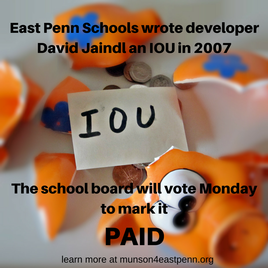
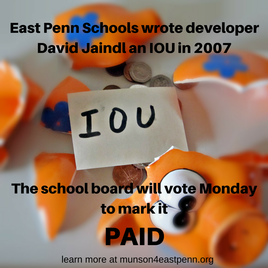
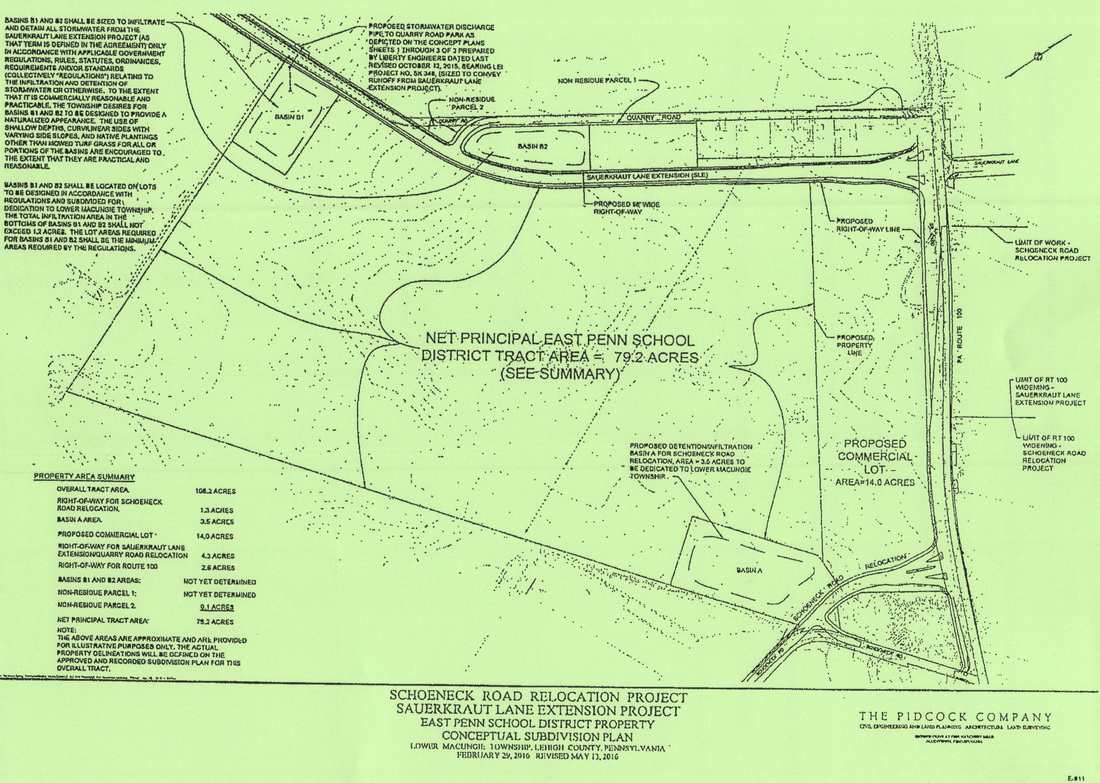
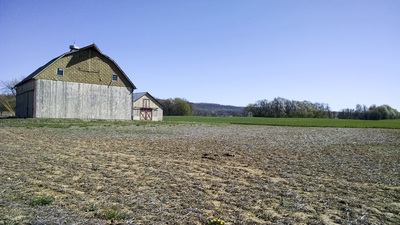

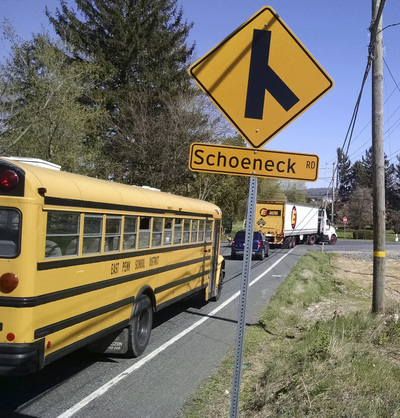
Do we know yet about how the former farm will be used – warehouses again? Sheets gas station will be right up the street. Is there no way to change zoning for what little bit of Lower Macuncie land that is still left?
Section # 10 of the agreement states the district shall not offer to dedicate any land to the township or other public entity for recreational or open space purposes without the written consent of Jaindl.
Why is Jaindl being given the right to veto or prevent such a dedication from happening ?? Why should he have any power over what the district may do with its land ??
Good questions. The language in section 10 is taken directly from the original 2007 agreement. The district was unsuccessful at negotiating the language out of the current agreement. Unfortunately, the current administration and board has to play with the cards they are dealt, and in this case the 2007 deal gave us an awful set of cards. We couldn’t win everything. As I stated at the board meeting, I view the language in this section as a blatant attempt by Jaindl to circumvent the spirit of LMT’s open space and recreation regulations, and it is my sincere hope that the township does not allow him to do so. In terms of the dedication of land to open space in the future, my understanding is that the term ‘dedicate’ has a very specific legal meaning and does not prevent the district from, for example, selling remaining property to the district for open space or entering a partnership with the township for recreation space. I hope this helps.